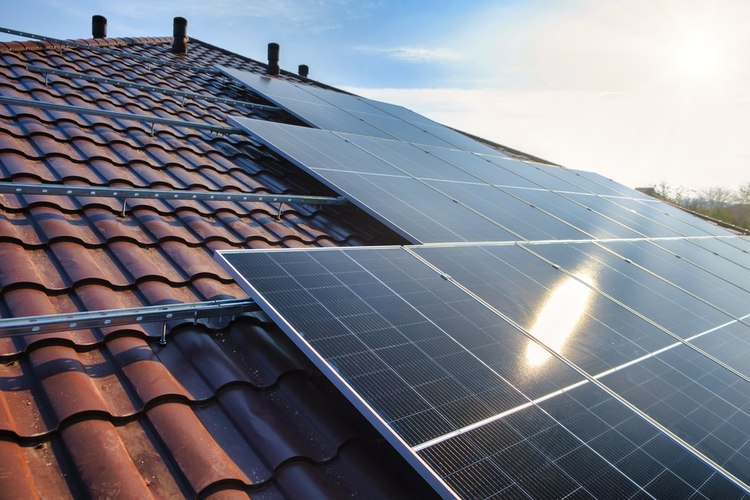Exploring Various Prices for Solar Air Conditioning Solutions
As the world shifts towards sustainable energy solutions, solar air conditioning has emerged as an eco-friendly alternative to traditional cooling systems. This innovative technology harnesses the power of the sun to keep your home comfortable while reducing your carbon footprint and potentially lowering energy bills. In this article, we'll delve into the various aspects of solar air conditioning, including pricing, selection criteria, and purchasing options.

What is a solar air conditioner and how does it work?
A solar air conditioner is a cooling system that utilizes solar energy to power its operation. Unlike conventional air conditioners that rely solely on electricity from the grid, solar air conditioners use photovoltaic (PV) panels to convert sunlight into electricity. This renewable energy source then powers the air conditioning unit, which can be either a split system or a central air conditioning system.
Solar air conditioners typically consist of three main components: solar panels, an inverter, and the air conditioning unit itself. The solar panels capture sunlight and convert it into direct current (DC) electricity. The inverter then transforms this DC power into alternating current (AC) electricity, which is used to run the air conditioner. Some systems also include battery storage to ensure continuous operation during cloudy days or at night.
How much do solar air conditioners typically cost?
The cost of solar air conditioning systems can vary widely depending on factors such as the size of the unit, the complexity of installation, and the quality of components used. Generally, solar air conditioners are more expensive upfront compared to traditional systems due to the additional solar equipment required.
| System Type | Capacity | Estimated Cost Range |
|---|---|---|
| Split System | 1-1.5 ton | £3,000 - £5,000 |
| Split System | 2-3 ton | £5,000 - £8,000 |
| Central System | 3-5 ton | £8,000 - £15,000 |
| Hybrid System | 3-5 ton | £10,000 - £20,000 |
Prices, rates, or cost estimates mentioned in this article are based on the latest available information but may change over time. Independent research is advised before making financial decisions.
It’s important to note that while the initial investment may be higher, solar air conditioners can lead to significant long-term savings on energy bills. Additionally, government incentives and rebates may be available to offset the upfront costs, making solar air conditioning more accessible to homeowners.
How can you find the right price for a solar air conditioner?
Finding the right price for a solar air conditioner requires careful consideration of several factors:
-
System size: Determine the cooling capacity needed for your space to avoid overpaying for an unnecessarily large system or underpaying for an inadequate one.
-
Energy efficiency: Look for systems with high SEER (Seasonal Energy Efficiency Ratio) ratings, as these tend to be more efficient and cost-effective in the long run.
-
Installation costs: Factor in the expense of professional installation, which can vary depending on the complexity of your home’s layout and existing electrical systems.
-
Warranty and maintenance: Consider the length and coverage of warranties offered, as well as the cost of ongoing maintenance.
-
Available incentives: Research local, state, and federal incentives that may reduce the overall cost of your solar air conditioning system.
-
Return on investment: Calculate the potential energy savings over time to determine if the initial investment is worthwhile for your specific situation.
Where can you purchase solar air conditioners?
There are several options for purchasing solar air conditioners:
-
Solar energy companies: Many solar panel installers now offer solar air conditioning systems as part of their product range. These companies often provide comprehensive services, including system design, installation, and maintenance.
-
HVAC specialists: Some heating, ventilation, and air conditioning (HVAC) companies have expanded their offerings to include solar-powered systems. They can provide expert advice on integrating solar air conditioning with existing HVAC setups.
-
Home improvement stores: Large retailers like Home Depot and Lowe’s sometimes carry solar air conditioning units or can order them for you. However, professional installation may need to be arranged separately.
-
Online marketplaces: Websites such as Amazon and specialized solar equipment suppliers offer a range of solar air conditioning systems. Ensure that you choose a reputable seller and consider the logistics of installation when purchasing online.
-
Manufacturer direct: Some solar air conditioner manufacturers sell directly to consumers through their websites or authorized dealers.
When choosing where to buy your solar air conditioner, consider factors such as product selection, pricing, customer support, and installation services. It’s often beneficial to obtain quotes from multiple providers to ensure you’re getting the best value for your investment.
In conclusion, solar air conditioning offers an environmentally friendly and potentially cost-effective alternative to traditional cooling systems. While the upfront costs may be higher, the long-term benefits in energy savings and reduced carbon emissions make it an attractive option for many homeowners. By carefully researching prices, finding the right system for your needs, and choosing a reputable supplier, you can make an informed decision about integrating solar air conditioning into your home.




